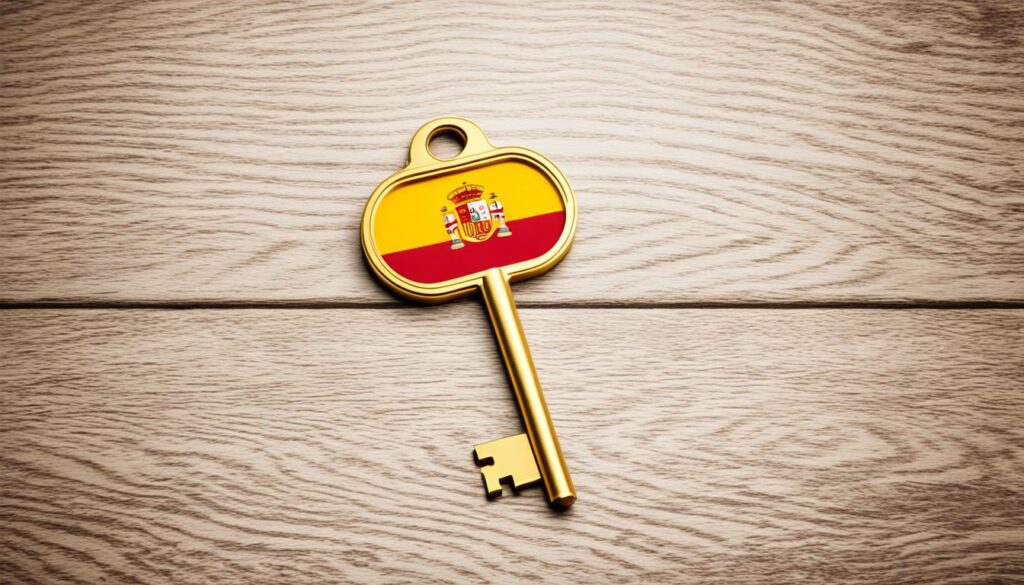For non-EU citizens, obtaining a Spain Residence Permit is key to opening the door to a life filled with vibrant culture, beautiful landscapes, and rich history. Navigating the complexities of residency in Spain can seem daunting, but this article provides a clear overview of various pathways to secure residency. Whether you’re considering investment, education, or employment, understanding how to get residence in Spain will empower you to make strategic decisions about your future.
Key Takeaways
- Spain offers various residency permit options tailored for non-EU citizens.
- Investment in real estate can lead to a Golden Visa, granting long-term residency.
- Student visas allow foreign residents to study in Spain while living there.
- Permanent residency requires a minimum of five years living in Spain.
- American citizens are increasingly moving to Spain, with the expat community growing substantially.
- The high quality of life and affordable cost of living make Spain a desirable destination.
- Access to Spain’s renowned healthcare system is available to residents.
Contact us if you are Interested in Buying Property Abroad!
Understanding Residency in Spain
Grasping the concept of residency in Spain is essential for anyone looking to settle down in this vibrant country. It involves navigating through various Spanish residency requirements that differ based on one’s nationality and the proposed length of stay. The types of residency permits vary to accommodate different circumstances, catering to EU citizens and non-EU nationals alike.
Types of Residency Permits
The main types of residency permits available include:
- Non-Lucrative Residency: This permit is ideal for retirees or individuals with sufficient financial resources. Applicants must show proof of at least €28,800 (around $30,000) in savings or a monthly income of €2,400 (approximately $2,550)12.
- Investor Visa: Individuals seeking to invest in Spain can apply for this visa by meeting significant financial investments, such as investing a minimum of €500,000 in real estate or holding more than €1 million in a Spanish bank13.
- Student Visa: This visa allows individuals to live in Spain while pursuing education at a recognized institution.
- Work Permit: Those offered employment in Spain can apply under this category, provided they meet specific legal requirements for Spanish residency.
Temporary vs. Permanent Residency
Temporary residency generally permits individuals to stay in Spain for a specific timeframe, typically linked to employment, study, or investment. Non-EU citizens must apply for a residency permit application Spain to reside for longer than 90 days in any given period of 180 days3. Conversely, permanent residency allows individuals to live in Spain indefinitely, following specific criteria, including holding a temporary residency permit for five years. Residents are subject to income tax systems, where spending over 183 days in Spain classifies them as tax residents3.
Spain Residence Permit: Your Pathway to a New Life

Navigating the residency permit application Spain process requires understanding specific steps tailored to your circumstances. Depending on the intended purpose, individuals may need to apply for a work, study, or investment visa for living in Spain. Initiating this journey begins with selecting the appropriate visa category, which impacts the required documentation and processing timeline.
Application Process Overview
The application process is designed to accommodate various types of applicants. For instance, since 2013, non-EU citizens purchasing property in Spain worth at least €500,000 can secure a renewable 2-year residence permit4. Additionally, the application can lead to a positive response in under 20 labor days, making it an efficient option for those seriously considering moving to Spain permit4. Furthermore, families can benefit from this arrangement, as the residency acquired through property investment allows inclusion of family members in the application process.
Important Documentation Required
Gathering the necessary documentation is vital in the residency permit application process. Essential documents for a visa for living in Spain typically include a valid passport, proof of sufficient financial means, health insurance, and a translated and legalized version of foreign documents. Private health insurance with a Spanish company generally costs between 50 and 70€ per month, offering potential discounts for families4. Understanding these requirements is critical as they play a crucial role in ensuring a smooth application experience.
As you prepare your application, ensure all documentation is complete and meets the specific criteria outlined for your particular visa type. This approach helps enhance your chances of approval, granting you the opportunity to start a new chapter in Spain.
| Visa Type | Validity | Renewal Options | Notes |
|---|---|---|---|
| Golden Visa | 3 Years | Renewable every 2 years | Fast processing, includes family |
| Student Visa | Varies | 1-year renewable | Multiple types based on course duration |
| Work Visa | 1 Year | Two renewals for 2 years | Applicable for employment contracts |
| Non-Lucrative Visa | 1 Year | Two 2-year renewals | For self-sufficient individuals |
Contact us if you are Interested in Buying Property Abroad!
Different Ways to Obtain a Residence Permit

For individuals seeking to establish a presence in Spain, understanding the various pathways to obtain a residence permit is crucial. The Spanish immigration system offers diverse options catering to different goals such as investment, study, and employment. These options include the Spain golden visa, which allows for residence through significant investment, along with student and work permits, each having its specific requirements and benefits.
Golden Visa through Investment
The Spain golden visa is a popular choice, particularly among non-EU citizens looking to invest in the country. This program requires a minimum investment of €500,000 in real estate or other qualifying investments. Residency through this method grants access to living in Spain while also benefiting from the potential appreciation of investment assets. It’s important to note that the process of obtaining this visa is typically streamlined, enhancing accessibility for investors looking to secure residency in Spain5.
Student and Study Visas
Non-EU citizens wishing to pursue education in Spain can apply for a student visa, which allows for study periods ranging from 3 to 24 months based on the course duration. The student visa permits part-time work, with a cap of 30 hours per week, providing students the opportunity to gain work experience while studying. Temporary residence permits linked to education can be an excellent means for young people to experience life in and establish connections that may lead to longer-term residency options later.
Work Permits and Employment Visas
For those seeking employment in Spain, a work permit is typically required, contingent on having a job offer from a Spanish employer. The process involves ensuring the job aligns with local labor laws and recruitment practices. An EU Blue Card can also be secured for highly qualified workers with an annual salary of at least €50,000. The pathway to legal residency through employment is an important avenue for those wishing to work and contribute to the Spanish economy (e.g., non-lucrative residence permits are an option for individuals demonstrating sufficient financial means)6.
The Benefits of Living in Spain

Living in Spain presents a multitude of advantages that enhance the quality of life for its residents. One notable perk is the favorable cost of living, which is generally lower than in several other Western European countries, making it an appealing destination for expatriates. Spain boasts a rich cultural heritage, with historic sites and a vibrant, family-friendly society that welcomes newcomers from various parts of the world.
High Quality of Life
The benefits of residency in Spain are not solely limited to financial factors. The climate is pleasant, allowing for outdoor activities almost all year round with temperatures rarely dipping below 9°C in major cities during winter seasons. Summers may bring higher temperatures, which could prompt additional expenditure on air conditioning, yet the overall lifestyle remains enviable.
Access to Healthcare and Public Services
Spain provides robust access to healthcare and public services. Legal residents can benefit from Spain’s well-established healthcare system, which is accessible to both citizens and expatriates. Additionally, the education system in Spain features three main structures: public, semi-private, and international schools, each catering to different needs and preferences. Individuals may find these options advantageous for their families.
Visa-Free Travel to Schengen Area
Acquiring residency in Spain grants individuals access to freedom of movement within the Schengen zone without the need for visas, a significant benefit for frequent travelers. Residents can visit other Schengen countries for up to 90 days within a 180-day period, further expanding their horizons and experiences.
For those wishing to delve further into the many perks that come with establishing residency in Spain, more detailed information can be found here7. Each factor not only contributes to personal well-being but also offers a unique experience reflecting the diverse cultures and welcoming nature of Spain’s society.
Conclusion
The journey to securing a Spain Residence Permit, while it may appear complex, offers various pathways tailored to individual circumstances. As demonstrated by the impressive statistics, with Spain receiving over 866,790 applications for residence and work permits in 2022 alone, the country continues to attract a diverse range of foreign residents seeking to enjoy its rich culture and lifestyle8. Understanding the specific requirements tied to different types of residency in Spain is crucial to ensuring a smooth transition and continuous eligibility for benefits.
For those considering moving to Spain permit, it’s essential to familiarize oneself with the various visa options available. A non-lucrative visa, for instance, mandates that applicants provide proof of financial means and maintain residence in Spain for at least 183 days each year to qualify for renewal9. By planning ahead and seeking professional advice, prospective residents can navigate the complexities of the application process with confidence.
Ultimately, enjoying life in Spain involves more than just obtaining a permit; it means embracing the vibrant lifestyle that attracts so many. Whether it’s the stunning landscapes, delectable cuisine, or cultural richness, Spain has much to offer its residents as outlined in our comprehensive guide. This holistic approach ensures that newcomers not only secure their residency status but also fully immerse themselves in the captivating experience of living in Spain.
Contact us if you are Interested in Buying Property Abroad!
FAQ
What is a Spain Residence Permit?
How do I get a residence permit in Spain?
What are the legal requirements for obtaining Spanish residency?
What documentation is needed for the residency permit application in Spain?
What is the Spain Golden Visa?
Can I study in Spain with a residence permit?
Are there any benefits to having residency in Spain?
How long does it take to process a residency permit application in Spain?
Source Links
- https://internationalliving.com/countries/spain/spain-visa-and-residency-information/
- https://www.comingtospain.com/blog/how-to-get-a-residence-permit-in-spain
- https://marfourlaw.com/spanish-residents-versus-nonresidents/
- https://www.immigrationspain.es/en/residency-buying-a-house/
- https://balcellsgroup.com/residence-permit-in-spain/
- https://immigrate-spain.com/residency-in-spain/
- https://myspainvisa.com/pros-cons-spanish-residency/
- https://echeverriaabogados.com/en/blog/breaking-news/spain-will-not-withdraw-residence-permits-for-6-months-outside-the-country
- https://getgoldenvisa.com/non-lucrative-visa-spain

Comments